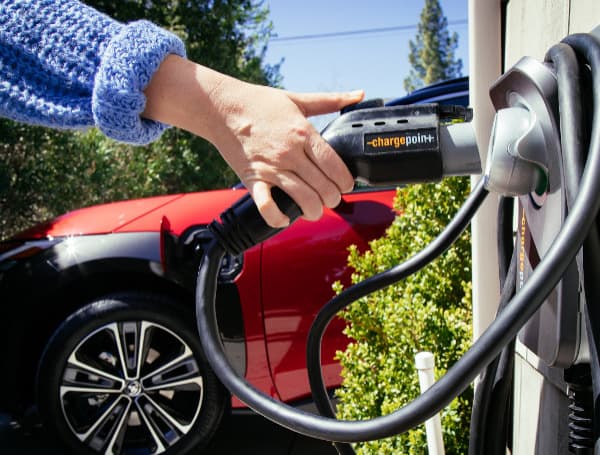The Biden administration announced new tariffs on Chinese electric vehicles (EVs), advanced batteries, solar cells, steel, aluminum, and medical equipment, sparking a fresh round of tensions between the world’s two largest economies.
Many see this move as an election-year strategy to bolster domestic manufacturing and counter China’s perceived unfair trade practices.
However, the implications of these tariffs extend far beyond a mere trade dispute, touching on deeper geopolitical and economic power dynamics.
Read: Biden’s Electric Vehicle ‘Mandate’ Might Just Be A Surprise Gift To China
The new tariffs are set to be implemented in a phased manner over the next three years.
The White House announced that by the end of this year, the administration will have increased tariffs on Chinese electric vehicles (EVs) from 25% to 100%, double tariffs on semiconductor chips imported from China to 50% by 2025, more than triple levies against Chinese EV batteries to 25% by next year, and double tariffs on solar cells imported from China to 50% by the end of this year.
Starting in 2024, the tariffs will cover a range of products, including EVs, solar cells, syringes, needles, steel, and aluminum. Administration officials have emphasized that these targeted measures are necessary to address China’s dominance in emerging technologies, which they view as a threat to U.S. national security and economic stability.
While the tariffs are expected to have a minimal impact on overall inflation, estimated at just a 0.01% increase, their long-term effects remain uncertain.
The administration believes the tariffs will raise the cost of select Chinese goods and help thwart Beijing’s efforts to dominate the market for emerging technologies.
However, experts warn that the tariffs could contribute to a wider trade dispute, potentially leading to retaliatory actions from China and further disrupting global supply chains.
Read: Stellantis To Lay Off Hundreds Of Employees As It Struggles To Transition To Electric Vehicles
One of the key battlegrounds in the U.S.-China trade tensions is the electric vehicle (EV) market. Chinese firms, benefiting from government subsidies, have been able to sell EVs for as little as $12,000, posing a significant threat to the U.S. auto industry.
The Biden administration’s tariffs aim to level the playing field and protect domestic manufacturers, while China’s leadership seeks to maintain its dominance in this strategically important sector.
The tariffs also target China’s solar cell and steel/aluminum industries, which the administration views as contributing to Beijing’s efforts to control the clean energy supply chain. Chinese officials argue that their production capacity helps keep prices low and supports the global transition to a green economy. However, the Biden administration sees this as an attempt by China to monopolize the market, potentially undermining the U.S.’s own clean energy ambitions.
Beyond the immediate trade concerns, the U.S.-China tariff dispute reflects a broader struggle for economic and geopolitical dominance. China’s aggressive pursuit of market share in strategic industries, enabled by government subsidies and production overcapacity, is seen by the U.S. as a challenge to the existing global economic order. The Biden administration’s tariffs are part of a broader strategy to reassert American competitiveness and maintain its position as the world’s leading economy.
The timing of the tariff announcement, coming amid the heated 2024 presidential campaign, has led some to view it as a political maneuver. Both Biden and his Republican challenger are vying to demonstrate their toughness on China, seeking to appeal to voters in key battleground states like Pennsylvania and Michigan, where manufacturing jobs are at stake.
Help support the Tampa Free Press by making any small donation by clicking here.
Android Users, Click To Download The Tampa Free Press App And Never Miss A Story. Follow Us On Facebook and Twitter. Sign up for our free newsletter.



